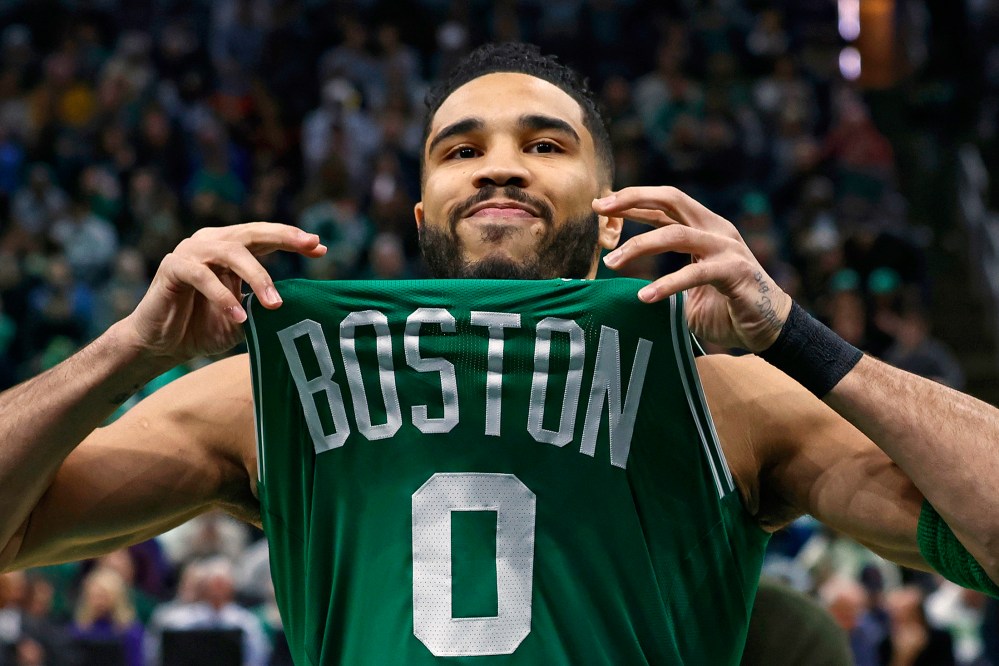The Boston Celtics, who have won more NBA championships than any other team, were sold for $6.1 billion last week, the most money ever for a professional sports franchise in North America. But outgoing minority owner Steve Pagliuca, whose bid was rejected, suggested the sale could mean bad news for the team’s faithful fans because of the private equity money reportedly going into the purchase.
Sixth Street, a Boston private equity firm, is putting $1 billion toward the purchase.
The team is being bought by a group led by Bill Chisholm, managing partner of private equity firm Symphony Technology Group. A person familiar with the matter told CNBC that Sixth Street, a Boston private equity firm, is putting $1 billion toward the purchase. Pagliuca believes his offer was better, and he dropped a warning all sports fans should take note of. “We made a fully guaranteed and financed offer at a record price, befitting the best sports fans in the world, and with all the capital coming from individuals who are fully committed to winning on and off the court,” Pagliuca wrote on X Thursday.
“We had no debt or private equity money that would potentially hamstring our ability to compete in the future. We have felt it was the best offer for the Celtics.”
Pagliuca is likely disappointed that his offer was spurned for a group of Johnny-come-latelies. Still, his calling out private equity money should raise eyebrows because he himself is a senior adviser at Bain Capital. Pagliuca is telling Celtics fans that there’s a conflict between the interests of private equity money and a commitment to winning. If anyone would know about the mindset at private equity firms, he would.
He’s a private equity guy who knows what such firms want, and he sees that as enough of a potential challenge for the Celtics to say so publicly — before NBA owners vote to approve the sale.
Sixth Street already owns a piece of the San Antonio Spurs and landed a deal for 10% of Major League Baseball’s San Francisco Giants the same week as the Celtics purchase.
A faceless, big-money group owning a sliver of the Celtics may not immediately cause alarm. But we’re witnessing a creeping shift in sports ownership that could have big future implications. Most American pro teams are still owned by individuals, families or investor groups that combine the two. For better or worse, owners are often the faces of their franchises. That’s why their personalities become associated with their teams’ personalities and why fans and journalists hold them personally accountable when their teams stink or there’s some scandal.
Everybody knows Jerry Jones owns the Dallas Cowboys and Robert Kraft owns the New England Patriots. As for the Celtics, outgoing owner Wyc Grousbeck sat in front of cameras himself to announce he was suspending then-Celtics coach Ime Udoka for having a personal relationship with a team employee.
Owners are often the faces of their franchises. That’s why fans hold them personally accountable when their teams stink.
When Grousbeck’s group bought the Celtics in 2002, the team was struggling. It hadn’t won a championship in 16 years. Grousbeck will be remembered in Boston for drafting superstars like Jayson Tatum and Jaylen Brown and assembling rosters that made it to four NBA Finals and won two championships.
Nothing’s to say that private equity owners won’t have similar success, but as Pagliuca must know, such firms are best known for cold-blooded efficiency. We’ve seen them downsize companies however they can: cutting salaries, selling off underperforming units, mass layoffs and holding fire sales on real estate.











